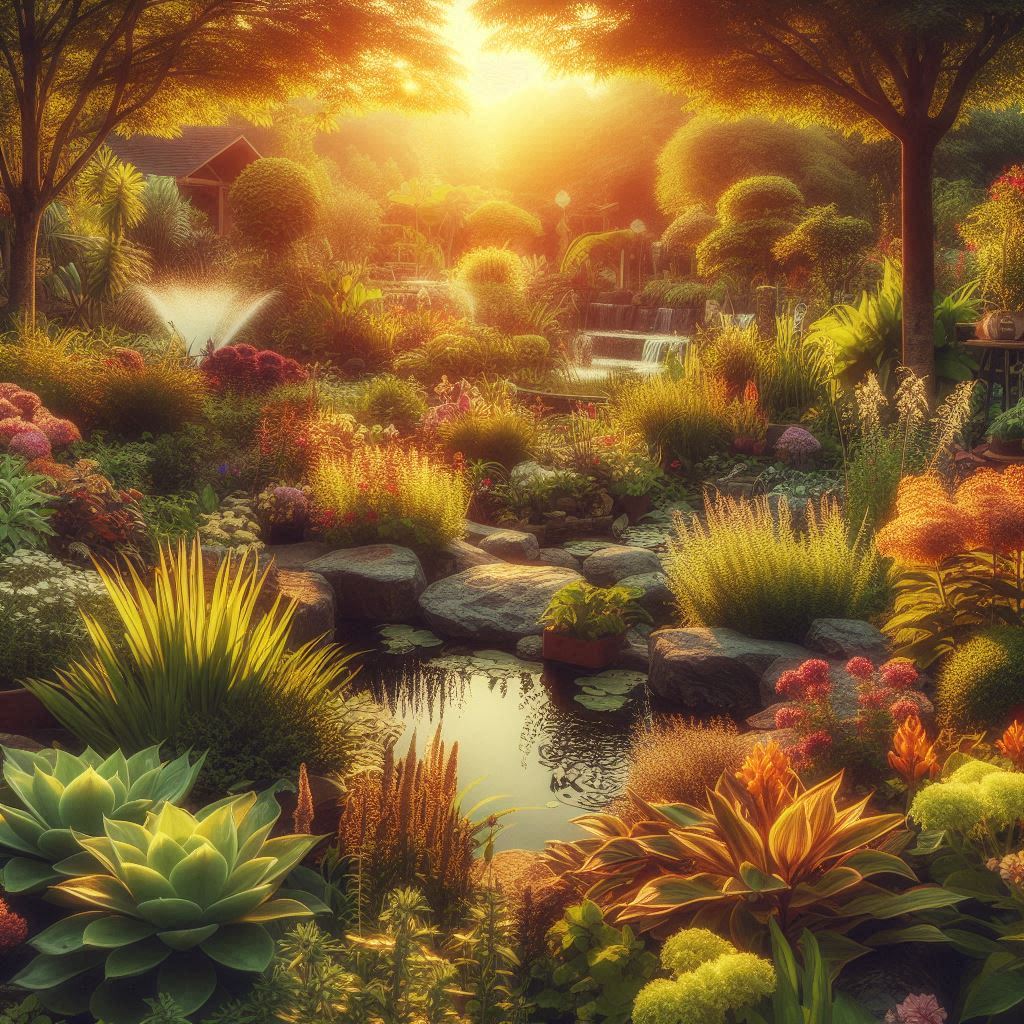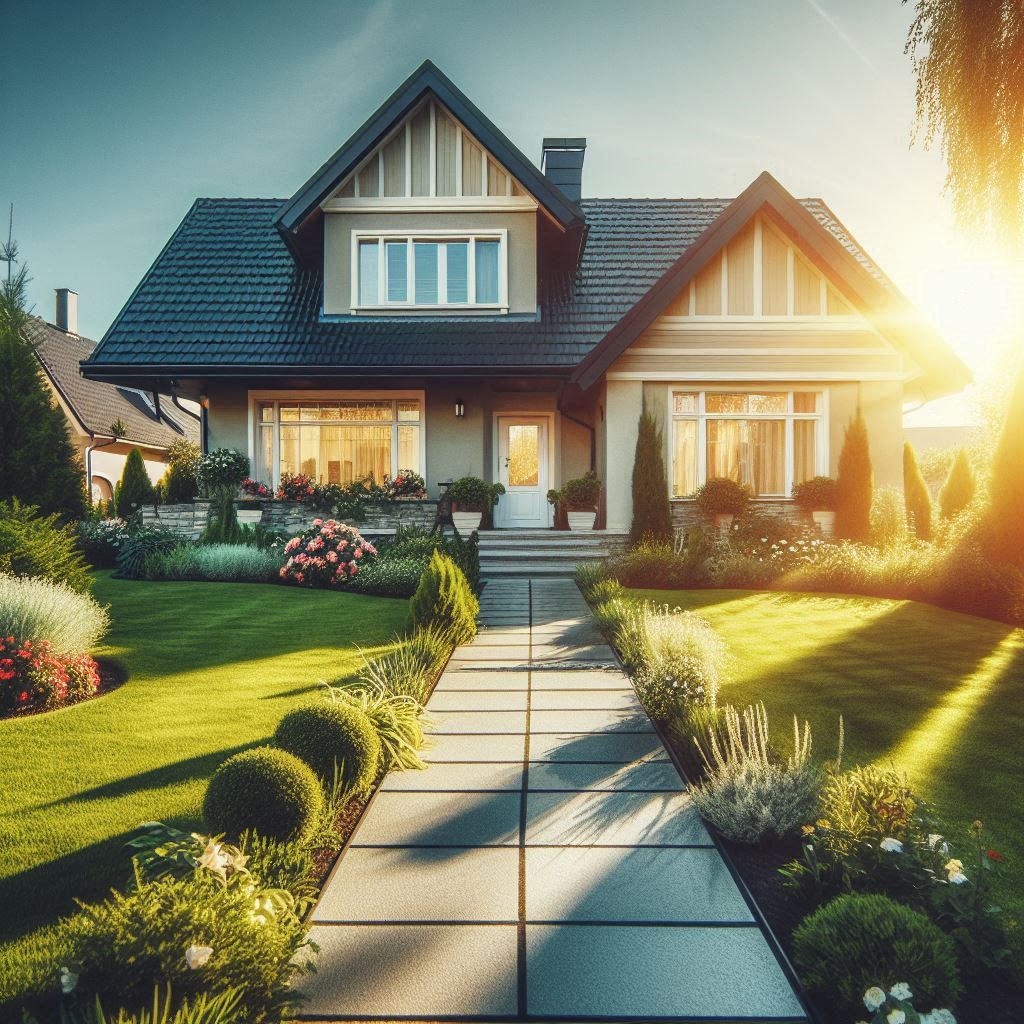How to Create the Best Sustainable Garden at Home | Checkout NOW
Creating a sustainable garden at home is key for a healthier planet. It means using less and making more room for nature. This guide will show you how to make your garden better for the Earth.
We'll talk about important practices, the good things they do, and how to make your garden green. By following these tips, you can make your backyard a green haven. You'll also help your community.
Key Takeaways
- Sustainable gardening minimizes human impact on the environment.
- Going organic is cost-effective and environmentally friendly.
- Mulching helps with moisture retention and weed control.
- Native plants require less water and adapt better to local climates.
- Composting transforms green waste into nutrient-rich fertilizer.
- Using electric tools over gas reduces carbon footprints.
- Implementing companion planting can reduce the need for chemicals.
Understanding Sustainable Gardening Practices
Sustainable gardening means taking care of the earth and keeping nature in balance. You might ask, what is sustainable gardening? It's about using ways that don't harm the earth. This means not using bad chemicals, saving water, and helping plants and animals.
What is Sustainable Gardening?
Sustainable gardening uses many methods to make the environment better. You can attract wildlife with plants that grow naturally in your area. These plants need less care and can handle the local weather well. By doing this, you help many different kinds of life and protect your local environment.
Benefits of Sustainable Gardening
There are many good things about sustainable gardening, for your garden and the earth. It cuts down on the use of harmful chemicals and saves water. Composting is also a great idea; it helps reduce trash and gives your plants food.
Your garden can do well and help the planet at the same time. Using many kinds of plants uses less water and helps insects that are good for your garden. Things like rain gardens and mulch keep your garden healthy and save water.
Best Sustainable Garden at Home: Key Components
Creating a sustainable garden is key for beauty and helping the planet. Using less water helps your garden and saves resources. Keeping your garden clean is important, and picking the right plants makes it easy.
Water Conservation Techniques
Using less water is crucial for a green garden. Think about using greywater for plants instead of wasting it. Rain barrels catch rainwater for plants, cutting down on city water use.
Using soaker hoses or drip irrigation sends water right to the roots. This cuts down on water lost to the air and helps plants grow deep roots. Stronger plants mean a better garden.
Effective Waste Management in Your Garden
Managing waste in your garden makes it healthier. Organic composting turns kitchen and garden waste into soil food. It helps plants grow and keeps waste out of landfills.
Adding compost to your garden routine boosts plant growth and cuts down on waste. It's a big win for your garden and the planet.
Choosing the Right Plants for Sustainability
Picking the right plants is key for a sustainable garden. Native plants need less water and care, and they help local animals. They fight off pests and diseases on their own.
Try to have 70% native plants in your garden. This makes your garden easier to care for and more natural.
Eco-Friendly Gardening Ideas to Implement
Using eco-friendly gardening ideas can make your garden more sustainable. You can help the planet by using organic gardening and saving energy outdoors.
Utilizing Organic Gardening Practices
Organic gardening keeps your garden healthy and safe. Here are some ways to do it:
- Natural pest control: Help good bugs like bees and bats fight pests.
- Composting: Turn kitchen and garden waste into food for your plants.
- Mulching: Put mulch around plants to save water and stop weeds.
- Rainwater harvesting: Save rainwater to water your garden, not using city water.
Outdoor Energy Efficiency Strategies
Using less energy outdoors saves resources. Try these ideas:
- Electric tools: Pick electric or hand tools over gas ones to use less fuel.
- Solar-powered lights: Use solar lights for paths to save energy.
- Xeriscaping: Pick plants that need little water for a low-water garden.
Incorporating Natural Gardening Techniques
Natural gardening helps plants and animals live together well. Here's how to help:
- Growing native plants: Plant local plants to help local wildlife and insects.
- Creating a community garden: Work with other gardeners to share and learn.
- Education: Share your green gardening tips to inspire others to be sustainable.
Conclusion
Making your garden sustainable is good for you and the planet. By using sustainable gardening, you help the earth and your garden. Using native plants cuts down on water use, and collecting rainwater saves about 1,300 gallons a year.
Using organic pest control is good for the earth. It's 90% better than using chemicals. Also, growing different plants together can make your veggies grow 40% more without using harmful chemicals.
Even small changes in gardening can make a big difference. Using less plastic and vertical gardening helps your garden and the planet. Every step you take towards a sustainable garden helps your garden and the world.
FAQ
What are some sustainable gardening practices I can start with?
Start by composting and using organic fertilizers. Add native and drought-resistant plants to your garden. These steps help save resources and support local wildlife.
How does water conservation work in sustainable gardening?
Use rain barrels to catch rainwater. Install drip irrigation to save water. Create rain gardens to soak up rain, keeping soil moist.
What are the benefits of creating an environmentally friendly garden?
An eco-friendly garden boosts local wildlife and reduces waste. It saves water and energy. This helps the local ecosystem.
How can I manage waste effectively in my garden?
Compost kitchen and yard waste to make your soil better. Avoid synthetic pesticides and fertilizers to protect the environment.
What types of plants are best for sustainable gardening?
Use native and drought-resistant plants in your garden. They fit your local climate well and need less care.
What eco-friendly gardening ideas can I implement at home?
Try organic gardening and use solar-powered lights. Use natural gardening methods like xeriscaping.
How do I start a green garden?
First, check your garden space. Choose plants that are native and sustainable. Use water-saving and organic gardening methods to lessen your impact on the environment.
What natural gardening techniques should I consider?
Use companion planting to save space and keep pests away. Mulch helps keep soil moist. Rotate crops to keep soil healthy and prevent diseases.



